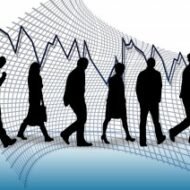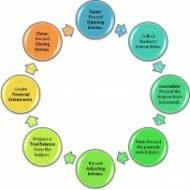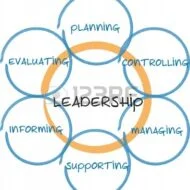Posted by Managementguru in Business Management, Principles of Management, Training & Development
on Mar 2nd, 2014 | 0 comments

MAN POWER PLANNING What is the meaning of man power development? This involves an accurate determination of the present and future man power needs of the enterprise. Also the assessment of the right kind of organization structure both present and projected which determines the number and kinds of managers and workers required, is called for. ELEMENTS OF MAN POWER PLANNING: 1. Present Man Power Position Analysis: An assessment and evaluation of present man power position is the first step in the process which involves data collection pertaining to name, age, educational qualification, training experience, specialized skills of the employees. This is done with the help of a man power inventory chart. 2. Man Power Inventory Chart: a) An overview of the present staffing situation of the company is known b) Prospective persons for promotion can be identified c) Future internal supply of human resource can be found out d) Lack of performance is pin pointed and either people can be replaced or trained suitably e) People on the verge of retirement are identified and plans are made to recruit suitable people to replace them f) People whose promotion is overdue but not implemented due to internal politics can be identified and justice can be done by the management. Pic Courtesy: SuccessFactors 3. Job Evaluation and Job Analysis: Job evaluation is a process to rate a job in the order of hierarchy and laying down specifications needed to carry out that job. This would high light the following information a) The nature of work done by the work force b) The method employed by them to do it c) The skills, education and training required to do it d) How a particular job is related to other jobs e) What are the physical environmental conditions to accomplish the task effectively After careful analysis a neat job description can be prepared for each job which would cover the following details. 4. Job Description: a) Name or title of the job b) Nature of duties and operations to be performed c) Authority, responsibilities and accountability d) Necessary qualification i.e., education, skills, training, experience etc. Pic Courtesy: Indiamart 5. Assessment of Long term and Short term Goals: The goals whether short term or long term is decided by the market demand, and sales forecasts. Determining these goals gives the company a clear picture as to where it is headed for in the future and the kind of man power requirement to satisfy the enterprise objectives. 6. Demand of Supply of Personnel: The demand for Labor is very high as we all know and it is inevitable for the organization to keep track in terms of man power inventory and requirement of present and future. You cannot hire any X, Y OR Z for a particular job. Inter departmental transfers can provide a temporary solution if a void is created for a specific position but it will not work out in the long run. “The ultimate objective of man power planning is to fill the demand and supply...

Posted by Managementguru in Accounting, Financial Accounting
on Feb 21st, 2014 | 0 comments

Characteristics and Objectives of Accounting What is Accounting: According to American Institute of Certified Public Accountants (AICPA), “Accounting is the art of recording, classifying and summarizing in a significant manner and in terms of money transactions and events which are, in part at least, of a financial character and interpreting the results thereof.” American Accounting Association (AAA) has defined accounting as “the process of identifying, measuring and communicating economic information to permit informed judgements and decisions by users of the information.” Characteristics of Accounting: i. Accounting is the art of recording and classifying different business transactions. ii. The business transactions may be completely or partially of financial nature. iii. Generally the business transactions are described in monetary terms. iv. In accounting process, the business transactions are summarized and analyzed so as to arrive at a meaningful interpretation. v. The analysis and interpretations thus obtained are communicated to those who are responsible to take certain decisions to determine the future course of business. The Small Biz Doers’ Guide to Small Biz Accounting Objectives of accounting: a. To record the business transactions in a systematic manner. b. To determine the gross profit and net profit earned by a firm during a specific period. c. To know the financial position of a firm at the close of the financial year by way of preparing the balance sheet d. To facilitate management control. e. To assess the taxable income and the sales tax liability. f. To provide requisite information to different parties, i.e., owners, creditors, employees, management, Government, investors, financial institutions, banks etc. ...

Posted by Managementguru in Business Management, Principles of Management
on Feb 15th, 2014 | 0 comments

Scope of Management Management determines the very survival of the organization Management concepts are applied in both business and non-business organizations In countries like USA the demand for management consultants is widespread and they have more clients from 1) Government 2) Hospitals 3) Universities 4) Schools 5) Professional associations 6) Community agencies etc. In India it is sad to see that only graduates coming out of reputed business schools being placed in the cream of positions by the corporates and others who pass out from the so called second grade institutes struggling to ground themselves. Many institutes offer management courses in the undergraduate and graduate levels for name sake, fail to implant the core purpose and perspective of the concepts of management in the minds of individuals. Also lack of expert faculty who have wide exposure and industry experience make the course dull and lifeless. Coming back, Management is said to be “Universal” and applied to all the organizations of the society, whether it is large or small, profit making or non-profit making, and a manufacturing or service enterprise Managing is the key social function and management is the effective, integrative,constitutive, determining, and differential organ of the society Management is the organ of leadership, direction and decision in a business enterprise and responsible for producing the results Management has evolved as the most lucrative academic discipline by itself offering huge scope for the graduates to perform and excel as teachers. Management faculty are in great demand all over the world and are as well compensated for their services. New disciplines of management like Public Health, Health care, Information Technology, Labor management are gaining importance Effective management is aimed at improved productivity ( efficient people produce effective results-so ‘RIGHT PEOPLE FOR THE RIGHT JOB’ becomes essential) Pic Courtesy: Coschedule The society has various facets like government, suppliers, local community, competitors, unions, stock-holders, customers etc. The manager is the spokesperson in-charge of negotiating and spending much of his time to predict and influence the future environment and take pro-active measures. This is the managerial function relating to the environment....

Posted by Managementguru in Accounting, Financial Accounting, Financial Management
on Feb 13th, 2014 | 0 comments

The purpose of accounting is to provide the information that is needed for sound economic decision making. The main purpose of financial accounting is to prepare financial reports that provide information about a firm’s performance to external parties such as investors, creditors, and tax authorities.








